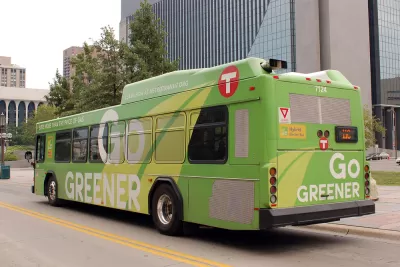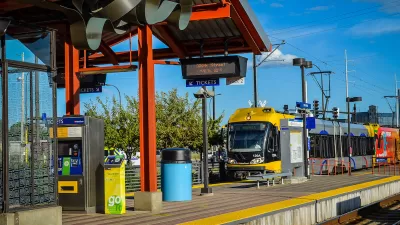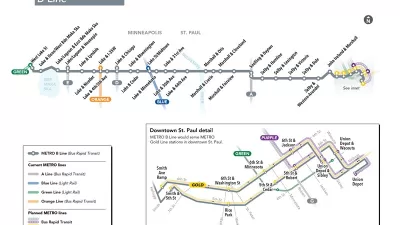The state's department of health is deploying the retrofitted buses to administer vaccines in hard-to-reach communities.

With a 40% reduction in service during the pandemic, Metro Transit, the Twin Cities' public transit agency, had some buses to spare. Meanwhile, some people in the state had difficulties accessing COVID-19 vaccines in their neighborhoods. "In Minnesota, as in many states, Black, Hispanic and Native American residents have received disproportionately fewer vaccine doses." To help get more people vaccinated, writes Henry Pan in Next City, "the Minnesota Department of Health, along with Metro Transit and Blue Cross and Blue Shield of Minnesota, debuted six buses specifically retrofitted to provide COVID-19 vaccines in areas where people need it the most."
The buses "are dispatched to a part of the state if the state health department finds an “obvious gap” in vaccine access. The health department works with partners in the community to identify these gaps, which can include a fear of crowds given social distancing guidelines, a lack of access to transportation and technology, free time, or poor English proficiency. Community organizations can also reach out to the health department to request a vaccine bus."
"Speaking to the challenges of getting people to vaccination events, Blue Cross and Blue Shield of Minnesota spokesperson Jenna Carter says, 'With each and every location, we learn there is no cookie-cutter solution, and each site is custom to the community, so we work hard every day to ensure we are customizing our approach and solution for each community.'"
FULL STORY: Minnesota Repurposes Transit Buses to Give COVID-19 Vaccines to Communities That Need Them Most

Alabama: Trump Terminates Settlements for Black Communities Harmed By Raw Sewage
Trump deemed the landmark civil rights agreement “illegal DEI and environmental justice policy.”

Planetizen Federal Action Tracker
A weekly monitor of how Trump’s orders and actions are impacting planners and planning in America.

The 120 Year Old Tiny Home Villages That Sheltered San Francisco’s Earthquake Refugees
More than a century ago, San Francisco mobilized to house thousands of residents displaced by the 1906 earthquake. Could their strategy offer a model for the present?

In Both Crashes and Crime, Public Transportation is Far Safer than Driving
Contrary to popular assumptions, public transportation has far lower crash and crime rates than automobile travel. For safer communities, improve and encourage transit travel.

Report: Zoning Reforms Should Complement Nashville’s Ambitious Transit Plan
Without reform, restrictive zoning codes will limit the impact of the city’s planned transit expansion and could exclude some of the residents who depend on transit the most.

Judge Orders Release of Frozen IRA, IIJA Funding
The decision is a victory for environmental groups who charged that freezing funds for critical infrastructure and disaster response programs caused “real and irreparable harm” to communities.
Urban Design for Planners 1: Software Tools
This six-course series explores essential urban design concepts using open source software and equips planners with the tools they need to participate fully in the urban design process.
Planning for Universal Design
Learn the tools for implementing Universal Design in planning regulations.
Clanton & Associates, Inc.
Jessamine County Fiscal Court
Institute for Housing and Urban Development Studies (IHS)
City of Grandview
Harvard GSD Executive Education
Toledo-Lucas County Plan Commissions
Salt Lake City
NYU Wagner Graduate School of Public Service





























